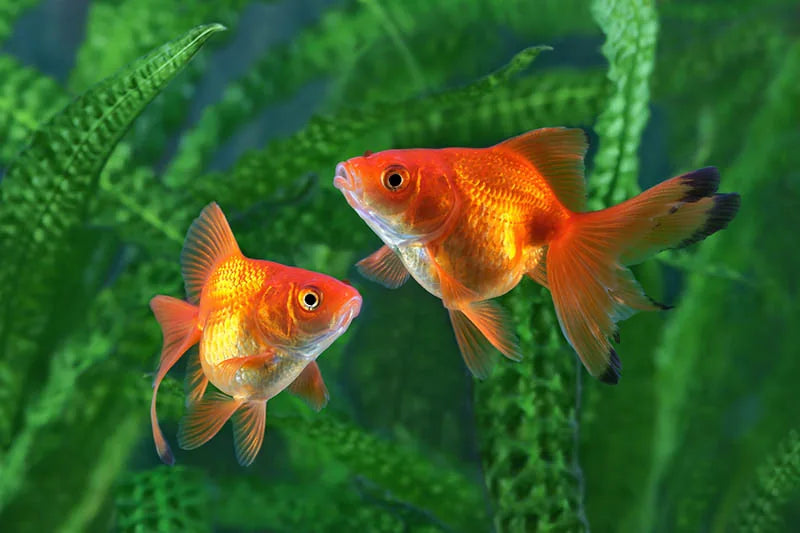
How to Feed Baby Fish?
It's crucial to understand how to feed newborn fish if you intend to raise them. It can be challenging to feed baby fish, and if you don't do it properly, it could result in health issues, stunted growth, or even death. These are some recommendations for feeding young fish:
To develop and thrive, baby fish need a certain ratio of nutrients in their diet. One of the most crucial nutrients for growing fish is protein since it promotes the growth and development of their muscles. Along with protein, they also need vitamins and minerals to support their general health, young fish also need fats and oils for energy and good brain development.
Fish flakes, fish feed pellets, live or frozen feeds, and other foods are all available for baby fish. Take into account the species and size of your newborn fish while selecting fish food. While some fish species can eat a range of foods, others need a particular kind of diet. Look for high-quality fish food for better growth of the baby fish. If you're unsure of what to feed your young fish, get advice from a qualified fish breeder or veterinarian.
Due to their small stomachs, baby fish need to eat frequently throughout the day. You might need to feed the fish every two to three hours, depending on the species. Do not overfeed your young fish as this may result in health issues like bloating or constipation. A good general rule of thumb is to feed your young fish as much as they can consume in a short period of time. A decent rule for feeding fish is to only give them as much food as they can consume in five to ten minutes.
During feeding time, watch your newborn fish to make sure they're eating properly. If you see some fish not eating, they can be ill or under stress. You might need to change their feeding schedule in this situation or try new food. The majority of fish feed in the morning and at dusk. Fish's digestive structure reflects their dietary habits.
Use a feeding ring or target feeding to make sure that each fish receives an equal amount of food while feeding a group of newborn fish. A feeding ring is a ring made of plastic or metal that you lay on the water's surface to hold the food in one spot. Target feeding is the practice of feeding individual fish with a turkey baster or pipette.
During feeding time, make sure to remove any leftover aqua fish food from the tank. Remove any surplus food from the bottom of the tank/container using a syphon or a net. Cleaning the fish tank breaks down fish waste, which increases water clarity. The organic substance is created in the tank when fish waste and leftover fish food combine. The organic substance causes the tank's available oxygen concentration to drop, which causes the fish to slow down and begin isolating themselves. Food waste can contaminate the water and harm your baby fish's health.
Your young fish's nutritional requirements will change as they get bigger. The fish products you give them and the frequency of their feedings should be adjusted accordingly. The rate of growth of your newborn fish is a good sign if you're feeding them appropriately. You might need to increase the food of your young fish if they are not developing as quickly as they should.
In addition to following these suggestions, it's crucial to maintain clean, well-oxygenated tank water. Your baby fish can be kept healthy with routine water changes and a filter that is working properly.
Ultimately, it takes time to feed young fish. You can contribute to ensuring that your young fish grow up healthy and strong by being aware of their nutritional requirements, making the appropriate food choices, and keeping an eye on their eating behaviour.
At Intan, we are here to provide you with premium fish feed. Our feed is tailored to meet the specific needs of each species. Every feed can spark positive change and create a future promoting quality, resilience, and well-being. We aim to serve the needs of hobbyists and breeders for the best quality of each species’ unique requirements. To know more about us, check out our Instagram page or find us at our nearest out spot.
We are not just a brand; we are stewards of the underwater world. We believe in the well-being of our friends and their mental health. Understanding and addressing the stressors that affect fish is not just a concept for us, it's a commitment. Through our dedication to research and innovative products, we aim to ensure that fish everywhere can lead happier, healthier lives.
.
